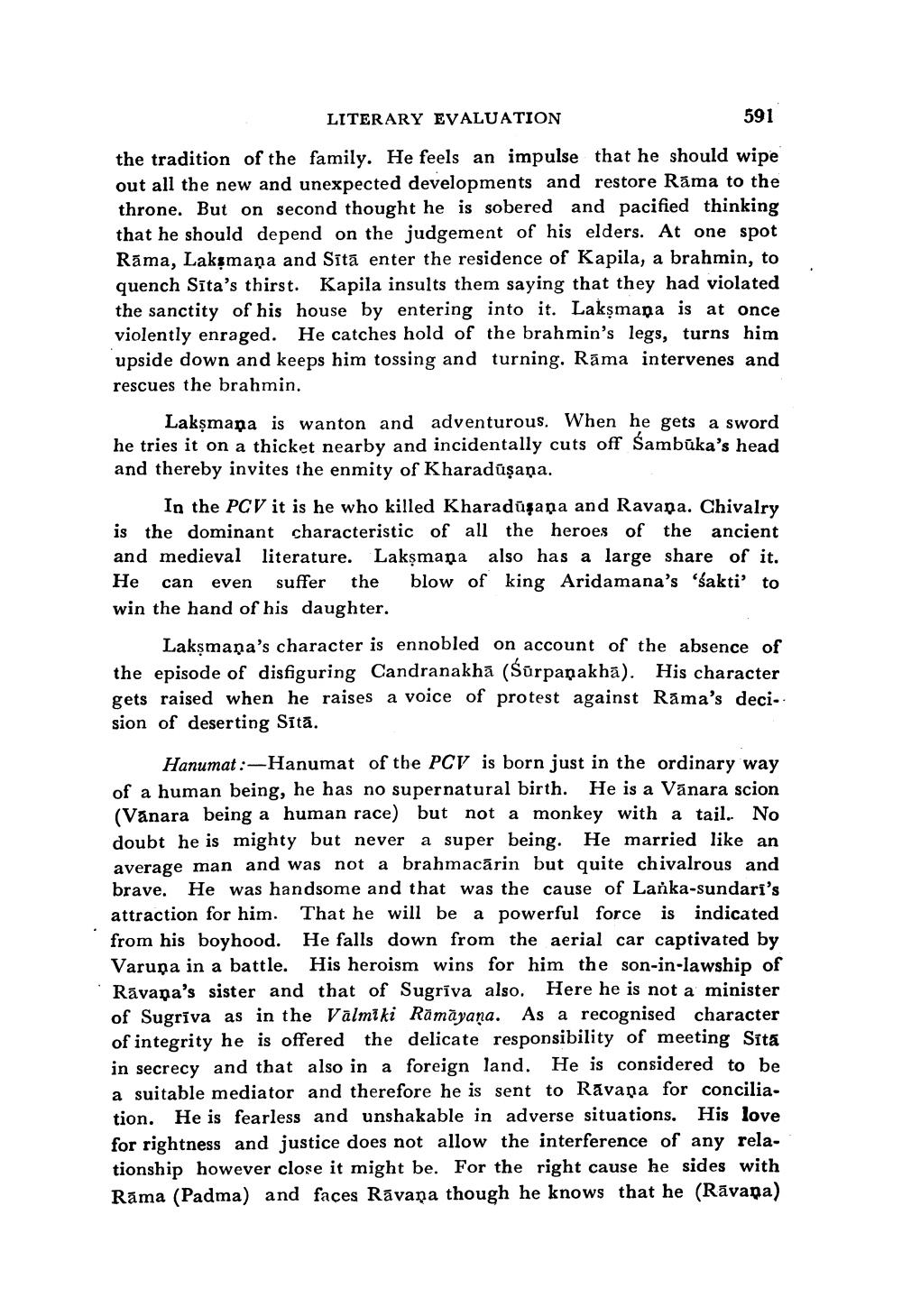________________
LITERARY EVALUATION
591
the tradition of the family. He feels an impulse that he should wipe out all the new and unexpected developments and restore Rama to the throne. But on second thought he is sobered and pacified thinking that he should depend on the judgement of his elders. At one spot Rāma, Lakşmaņa and Sitä enter the residence of Kapila, a brahmin, to quench Sīta's thirst. Kapila insults them saying that they had violated the sanctity of his house by entering into it. Laksmana is at once violently enraged. He catches hold of the brahmin's legs, turns him upside down and keeps him tossing and turning. Rāma intervenes and rescues the brahmin.
Laksmana is wanton and adventurous. When he gets a sword he tries it on a thicket nearby and incidentally cuts off Sambūka's head and thereby invites the enmity of Kharaduşaņa.
In the PCV it is he who killed Kharadūşaņa and Ravana. Chivalry is the dominant characteristic of all the heroes of the ancient and medieval literature. Lakşmaņa also has a large share of it. He can even suffer the blow of king Aridamana's 'sakti' to win the hand of his daughter.
Laksmana's character is ennobled on account of the absence of the episode of disfiguring Candranakha (Śūrpanakha). His character gets raised when he raises a voice of protest against Rāma's deci.. sion of deserting Sitä.
Hanumat:-Hanumat of the PCV is born just in the ordinary way of a human being, he has no supernatural birth. He is a Vánara scion (Vanara being a human race) but not a monkey with a tail. No doubt he is mighty but never a super being. He married like an average man and was not a brahmacārin but quite chivalrous and brave. He was handsome and that was the cause of Lanka-sundari's attraction for him. That he will be a powerful force is indicated from his boyhood. He falls down from the aerial car captivated by Varuņa in a battle. His heroism wins for him the son-in-lawship of Rāvana's sister and that of Sugrīva also. Here he is not a minister of Sugriva as in the Valmiki Rāmāyana. As a recognised character of integrity he is offered the delicate responsibility of meeting Sita in secrecy and that also in a foreign land. He is considered to be a suitable mediator and therefore he is sent to Rāvana for concilia. tion. He is fearless and unshakable in adverse situations. His love for rightness and justice does not allow the interference of any relationship however close it might be. For the right cause he sides with Rāma (Padma) and faces Rāvana though he knows that he (Rāvana)




